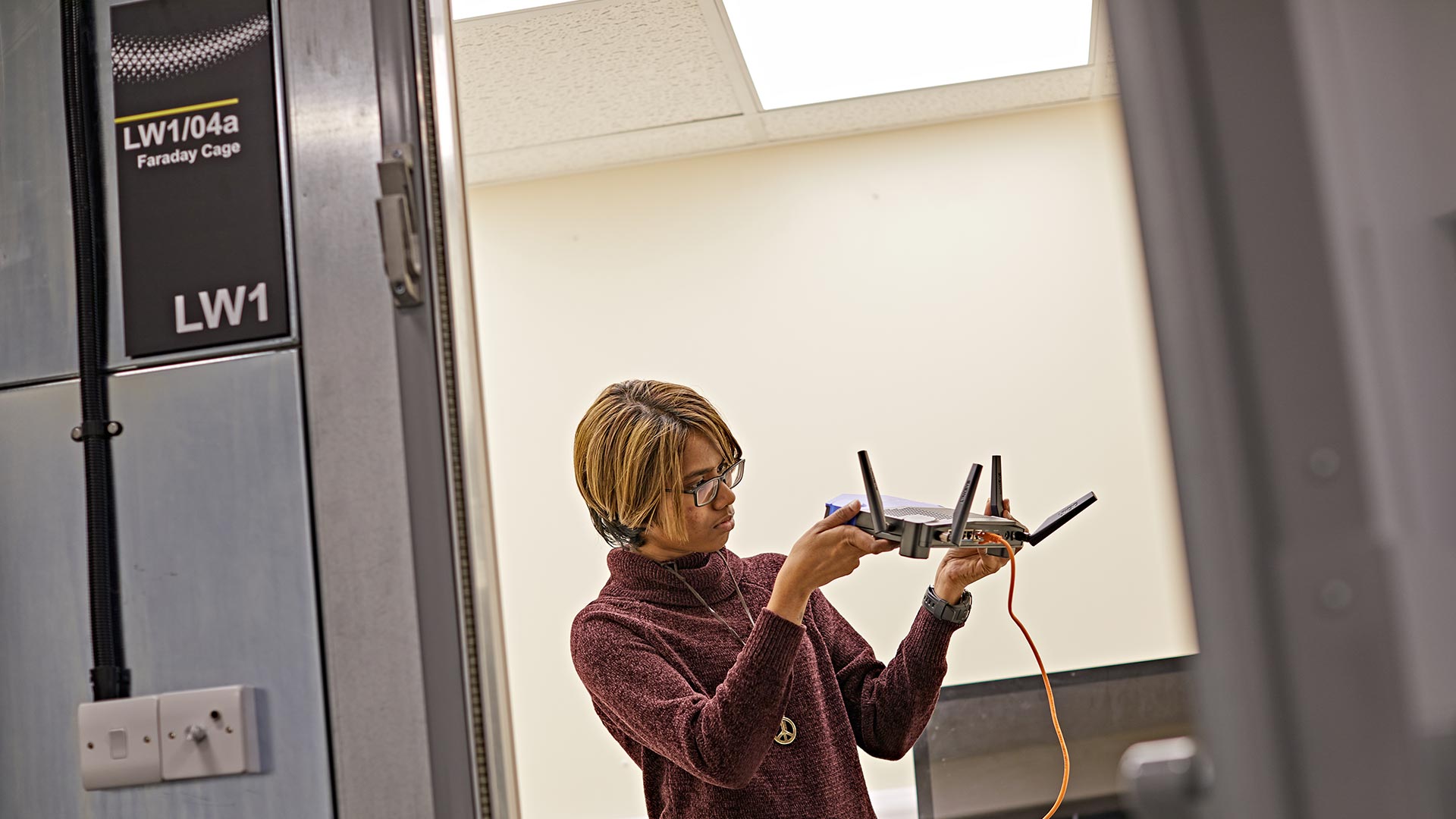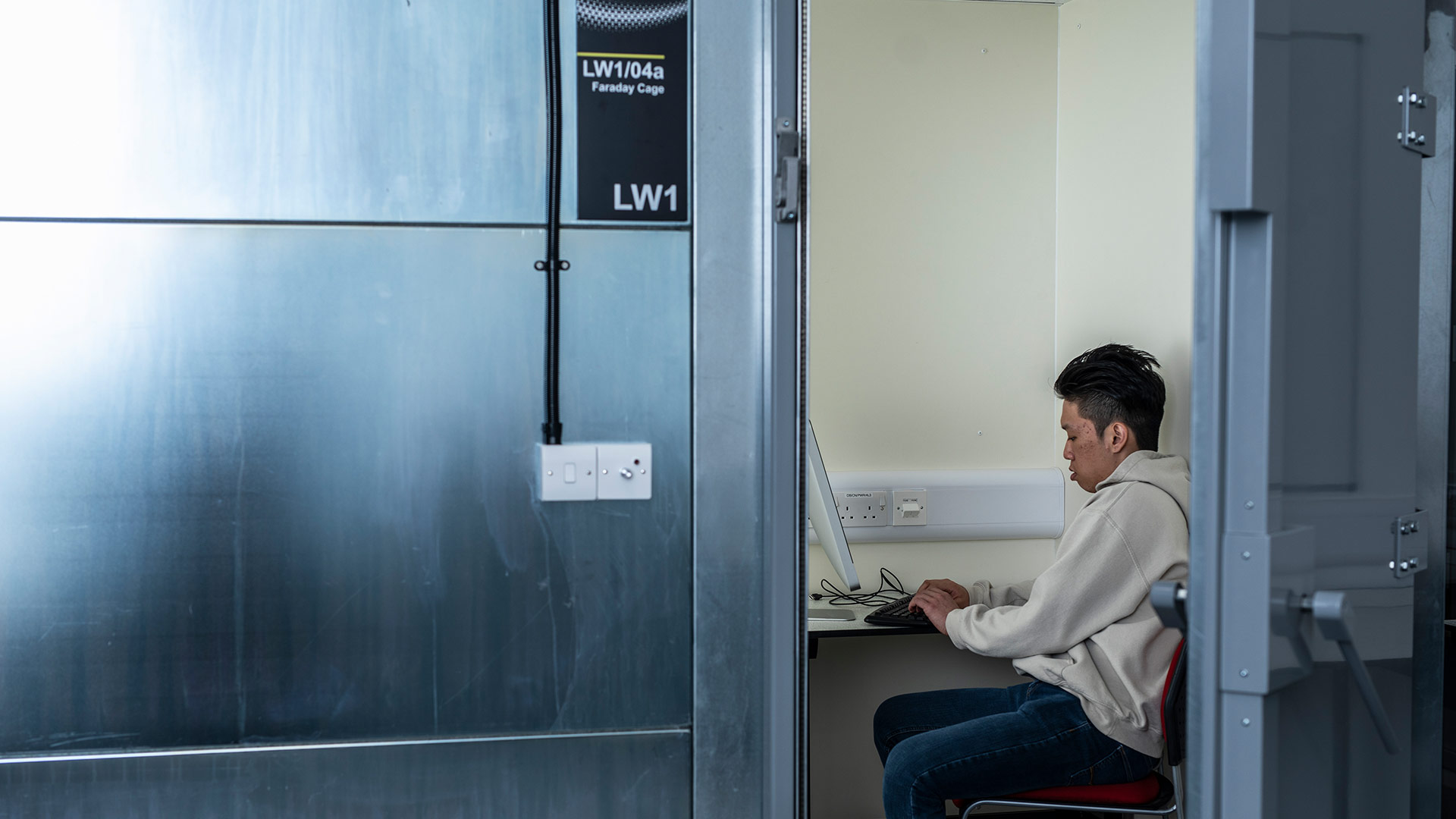
Why work in Cyber Security?
Use the latest technologies and strategies to shield organisations and individuals from cyberattacks.
What does a Cyber Security professional do?
A Cyber Security professional is responsible for protecting organisations from cyber attacks and unauthorised access. They use a range of technologies and processes to predict, detect and prevent cyber threats, as well as combatting these attacks when they do occur.
This blog will provide you with some insight into this rewarding and dynamic role by exploring five key reasons why you should work in Cyber Security.
Why should I work in Cyber Security?
Be in-demand
Cybercrime remains prevalent, with organisations from T-Mobile to Buckingham Palace to the NHS facing high-profile attacks this year alone. This means there is high demand across various industries for Cyber Security professionals who can provide the expertise to prevent these digital intrusions.
Plus, there is currently a shortage of skilled professionals in Cyber Security, with 20% of Cyber Sector employers reporting having employees who lack the necessary technical skills for their roles. Therefore, if you possess the technical skills that organisations need, you will likely be in high demand.
Earn an attractive salary
The high demand for Cyber Security professionals, coupled with a limited supply of talent to meet this demand, means that it is commonplace for organisations to offer high and competitive salaries. In fact, across the 12 months of 2021, the average advertised salary for a core Cyber job posting was £60,100.
For those of you interested in entry level roles, Prospects states that the starting salary for a Cyber Security Analyst generally falls between £25,000 - £35,000, rising to £35,000-£60,000 for experienced and senior roles, and up to and in excess of £70,000 for higher level leadership and management positions. There is therefore potential to enjoy a high and rising salary throughout your Cyber Security career.
Opportunities for growth
Working in Cyber Security can afford you a wide range of opportunities for growth and specialisation. In fact, the UK Cyber Security Council names 16 Cyber Security specialisms, ranging from digital forensics to cryptography to secure system architecture. The great thing here is that many Cyber roles will include parts of one or more of these specialisms, allowing you to develop a strong and highly sought skillset.
If you are not looking to specialise, there are generalist opportunities too. Research from the Department for Digital, Culture, Media & Sport found that 26% of the Cyber Security workforce are employed as Cyber Security generalists; while 14% are working in governance, risk and compliance and the remaining 60% are working as technical specialists.

Make a real-world impact
As a Cyber Security professional, your job is to be proactive, staying one step ahead of the criminals, which can be exciting as you use the latest technologies to predict their behaviour and put safeguards in place.
In addition, the very nature of the role involves doing something good and meaningful, by protecting organisations and individuals from attacks which could cause financial and emotional harm. And so, you will gain satisfaction from the knowledge that your work is having a positive impact on the lives of real people whose data is stored with the organisations that you work for.
With regard to job satisfaction, the Cyber Workforce Study 2022 found that worldwide, 76% of Cyber Security professionals report that they are satisfied with their jobs.
Flexible entry routes
One of the best things about Cyber Security is that there is no set entry route and you don’t always need to have a background in Cyber Security. For example, professionals from related IT fields can undertake courses to develop their Cyber Security skills and enter the profession this way.
If you are lacking relevant experience, there are apprenticeship opportunities and a myriad of online courses catering to all levels of experience. Alternatively, for those of you with formal academic qualifications in Cyber Security or related fields, many institutions offer Master’s level Cyber Security qualifications to provide you with advanced technical skills and boost your knowledge beyond degree level.

Is working in Cyber Security right for me?
Cyber Security is such a varied field, with so many specialisms and entry routes – making it an attractive career option for people from a range of backgrounds.
If you have a genuine interest in Cyber Security and IT and a good knowledge of computing, this is a good starting point for working in Cyber Security.
Aside from technical skills, there are a number of transferable skills that you’ll need to work in Cyber Security, which you likely already possess. For example, analytical and problem-solving skills to recognise and deal with cyber threats, and communication skills for conveying technical information to colleagues and key stakeholders.
What should I study to become a Cyber Security professional?
At the University of Huddersfield, we offer a Master’s in Cyber Security and Digital Forensics designed to equip you with the advanced specialist knowledge needed to work in a contemporary Cyber Security role. This course is provisionally certified by the National Cyber Security Centre, which recognises degree courses with well-defined and relevant content delivered to an appropriate standard.
Our Cyber Security MSc is aimed at graduates from Computing and related subject areas, as well as professionals with relevant industry experience. And we offer online and part-time options to give you the flexibility to fit your studies around your current commitments.


